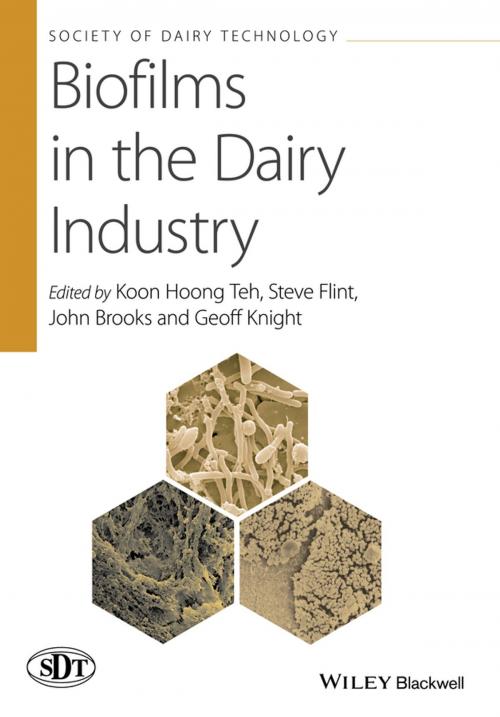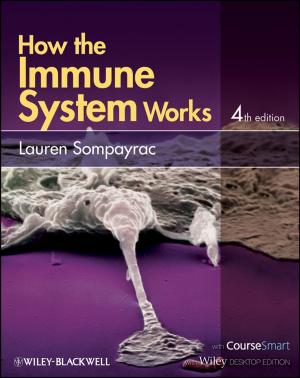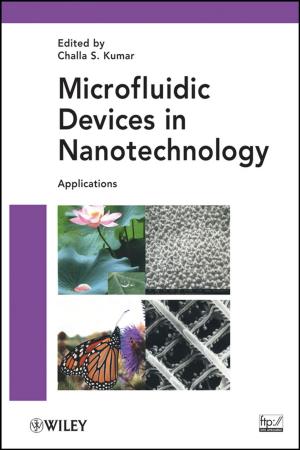| Author: | ISBN: | 9781118876237 | |
| Publisher: | Wiley | Publication: | June 29, 2015 |
| Imprint: | Wiley | Language: | English |
| Author: | |
| ISBN: | 9781118876237 |
| Publisher: | Wiley |
| Publication: | June 29, 2015 |
| Imprint: | Wiley |
| Language: | English |
In recent years, the formation and impacts of biofilms on dairy manufacturing have been studied extensively, from the effects of microbial enzymes produced during transportation of raw milk to the mechanisms of biofilm formation by thermophilic spore-forming bacteria. The dairy industry now has a better understanding of biofilms and of approaches that may be adopted to reduce the impacts that biofilms have on manufacturing efficiencies and the quality of dairy products. Biofilms in the Dairy Industry provides a comprehensive overview of biofilm-related issues facing the dairy sector. The book is a cornerstone for a better understanding of the current science and of ways to reduce the occurrence of biofilms associated with dairy manufacturing. The introductory section covers the definition and basic concepts of biofilm formation and development, and provides an overview of problems caused by the occurrence of biofilms along the dairy manufacturing chain. The second section of the book focuses on specific biofilm-related issues, including the quality of raw milk influenced by biofilms, biofilm formation by thermoduric streptococci and thermophilic spore-forming bacteria in dairy manufacturing plants, the presence of pathogens in biofilms, and biofilms associated with dairy waste effluent. The final section of the book looks at the application of modelling approaches to control biofilms. Potential solutions for reducing contamination throughout the dairy manufacturing chain are also presented. Essential to professionals in the global dairy sector, Biofilms in the Dairy Industry will be of great interest to anyone in the food and beverage, academic and government sectors. This text is specifically targeted at dairy professionals who aim to improve the quality and consistency of dairy products and improve the efficiency of dairy product manufacture through optimizing the use of dairy manufacturing plant and reducing operating costs.
In recent years, the formation and impacts of biofilms on dairy manufacturing have been studied extensively, from the effects of microbial enzymes produced during transportation of raw milk to the mechanisms of biofilm formation by thermophilic spore-forming bacteria. The dairy industry now has a better understanding of biofilms and of approaches that may be adopted to reduce the impacts that biofilms have on manufacturing efficiencies and the quality of dairy products. Biofilms in the Dairy Industry provides a comprehensive overview of biofilm-related issues facing the dairy sector. The book is a cornerstone for a better understanding of the current science and of ways to reduce the occurrence of biofilms associated with dairy manufacturing. The introductory section covers the definition and basic concepts of biofilm formation and development, and provides an overview of problems caused by the occurrence of biofilms along the dairy manufacturing chain. The second section of the book focuses on specific biofilm-related issues, including the quality of raw milk influenced by biofilms, biofilm formation by thermoduric streptococci and thermophilic spore-forming bacteria in dairy manufacturing plants, the presence of pathogens in biofilms, and biofilms associated with dairy waste effluent. The final section of the book looks at the application of modelling approaches to control biofilms. Potential solutions for reducing contamination throughout the dairy manufacturing chain are also presented. Essential to professionals in the global dairy sector, Biofilms in the Dairy Industry will be of great interest to anyone in the food and beverage, academic and government sectors. This text is specifically targeted at dairy professionals who aim to improve the quality and consistency of dairy products and improve the efficiency of dairy product manufacture through optimizing the use of dairy manufacturing plant and reducing operating costs.















